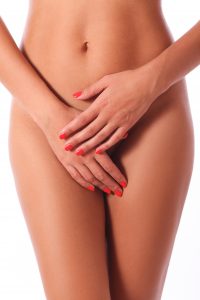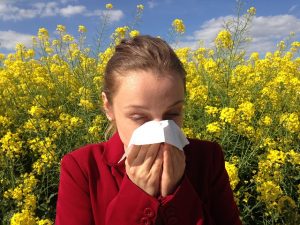Follow Us on Instagram
In-Network Insurance:
Aetna, Blue Cross Blue Shield, Cigna, Humana & United Healthcare
Home visits are available, inquire on this page
Accepting No-fault injury patients with auto-insurance
Uncategorized
Empire Radio Now Live Interview
Empire Radio Now Live Interview
Why acupuncture is particularly effective for women
By Philip Jean, L.Ac

In all the times that I was an intern at the New York College of Traditional Chinese Medicine, working for various rehabilitation clinics and within my own private practice, one thing has always been a constant theme: women are by far, more likely to seek acupuncture as a form of alternative medicine. Based on my rough estimations, the proportions of women to men who are acupuncture patients are probably 4 to 1. In general, men tend to seek medical care far less than women for various reasons but I suspect male ego has a part to play, and as a man, I admit I am not exempt from this myself. I hope that this will change one day. This trend got me thinking that maybe women are just more in tune with their bodies. Unlike men, for a significant portion of their adult lives, women have to account for a monthly visitor that is essential to their unique ability to produce life. This monthly visitor is a young girl’s physical initiation into womanhood and has the power to influence her thinking and behaviors for nearly 4 decades of her life. She begins to familiarize, and accept it’s presence. She learns to live with it and it becomes a part of her identity, for as long as it’s there, she knows she can produce children. As time goes on, for some women who have never had children, the pressure of knowing they have a deadline to do so can put a tremendous pressure on them. Once this visitor is gone for good, a new phase of life begins and with it different emotional states and life adjustments that need to happen. This got me thinking that within the system of Chinese medicine, there are various ways to diagnose but this unique visitor of one gender offers key insights in diagnosis that I believe allow acupuncture and Chinese medicine to be even more effective for women. The monthly visitor I am referring to is called the menstrual cycle and it is the golden ticket to helping your acupuncturist keep you healthy.
Thousands of years ago, we didn’t have MRI’s, CAT scans, EKG’s or any of the modern day diagnostic machines that directly see into the body to tell us why we were sick. The ancients had to rely on careful observation of the body and learned to discern every little detail like a detective investigating a crime scene. The priority of ancient healers was to prevent disease before it happened. a disease doesn’t just appear instantaneously. Sickness has a process and develops over time and if you pay close enough attention to your body on a daily basis you’ll be able to pick up all the early warning signs of disease when they are completely curable. Our modern technology will tell us what’s wrong with us now when the problem has already persisted over time. Acupuncturists are trained with the same diagnostic methods that were employed thousands of years ago. For instance, the most common method that all acupuncturists learn in TCM school are tongue and pulse diagnostics. The tongue was considered an internal organ much like your liver or large intestine. What happens inside the body will reflect onto the tongue. For example, a patient who comes in for bad migraines could show a significantly red tongue with a thick moist yellow tongue coating. That would tell me there’s a lot of heat in their body to go along with fluid retention. So in addition to acupuncture, I would advise the patient to stay away from too much spicy, greasy or fried foods as well as keeping away from too many raw foods and dairy. Poor circulation would most likely result in a pulse that feels tense because the blood is not flowing smoothly and where there is tension within the body there is pain. There are plenty of textbooks out there about tongue and pulse diagnosis as well as ocular (eye) but that’s just some very brief background information to help the reader make this important distinction: that men and women both have tongues and pulses but only women have menstrual cycles, and with that, an acupuncturist can get even deeper into the nature of their illnesses and imbalances.
The first thing to consider is the regularity of the period. I’m sure most women know how stress and emotional disturbances can cause their periods to sometimes come late or early. In TCM, the organs that are primarily responsible for the regulation of menstruation are the liver, spleen, kidneys, and to a lesser extent, the heart. Stress has a keen ability to affect our health, in particular, these very organs. The liver is responsible for making sure the flow of menstrual blood is smooth without constraints at a routine and predictable monthly schedule. Stress easily prevents the liver’s ability to do these functions. In TCM this condition is often called liver qi stagnation. Sometimes stress isn’t so apparent within a patient and some women don’t recognize when they are under stress because their symptoms are more hidden. But an irregular period can clue an acupuncturist to help the patient recognize hidden feelings of turmoil that are affecting her health that she would have otherwise internalized. It’s the deep and hidden negative emotions that patients hold onto that tend to cause the most damage to their mental and physical health.
Another aspect of the period that clues an acupuncturist into the more subtle imbalances of the patient is the frequency of bleeding. It is most common for women to bleed for 5 days starting off with heavy bleeding that gradually decreases by day 5. If a female patient tends to have a short bleeding period that’s less than 5 days, has a pale tongue color and a weak pulse I would diagnose her as having a condition called blood deficiency. The blood is what nourishes the entire body as it contains all the nutrients we have absorbed from our food as well as the oxygen from the air we breath. If the body is malnourished, the body will try to retain the menstrual blood as a defense mechanism or it can indicate there isn’t as much blood to release and therefore my treatments would focus on building up her blood through acupuncture, a more nutrient dense diet and maybe even some herbs if the condition is chronic enough. This condition is common with vegan patients who become anemic if they don’t ingest enough iron-rich vegetables or supplements.
The texture is a quality of menstrual blood that has important ramifications as well. If there are abnormal amounts of clumps within the menstrual blood, accompanied by cramping with a feeling of coolness on the lower belly to the touch, this is often a sign of a condition known as cold in the uterus. The womb is sensitive to any slight change in temperature and therefore should be kept warm at all times. In traditional Chinese medical philosophy, this is a common cause of infertility in women. Modern dietary trends recommend raw foods like salads and raw vegetables but these foods, although “healthy”, can cause the body to feel colder especially during the fall and winter months. Wearing crop top shirts that expose the belly can also contribute to this condition. The abdomen with its concentration of internal organs is like the engine of the body and should be kept warm and any exposure to wind drafts or cold air such as air conditioning can have uncomfortable results over a period of time. Repeated intake of foods like ice cream and cold beverages including cold water may also contribute to an accumulation of cold, and over time for some women, the cold may affect their reproductive system leading to difficulties in their menstrual cycles and their ability to give birth. Simply being mindful of keeping the lower abdomen covered during certain weather conditions, eating more cooked vegetables instead of raw ones and avoiding cold beverages can improve these imbalances.
There are a lot more conditions that affect the menstrual cycle. They are so vast that entire books have been written and classes have been focused on the area of gynecology and traditional Chinese medicine. Men can have these very same conditions like blood deficiency and liver qi stagnation (except for cold in the uterus for obvious reasons) but the symptoms can be a lot more subtle in men which leave a little more potential for an incorrect diagnosis. The menstrual cycles allow acupuncturists to diagnose with more pin-point accuracy. In life, only when there is clear and irrefutable evidence to support a problem can the proper solution be reached to resolve it. The same is true when it comes to healing illness.
Philip Jean, L.Ac
Founder of Lifestyle Acupuncture
Seasonal Allergies? Try some Acupuncture.
By Philip Jean, L.Ac
 Imagine having to stay home because the pollen count is too high during a perfect 75 degree, but windy day, while people are out enjoying the soothing Spring Sun. I’ve watched my mom suffer from allergies for years where she could not go a day without her Benadryl. A good friend of mine once sneezed uncontrollably for 5 minutes straight in my car followed by blood shot eyes that forced him to go home in the middle of our meeting. That was brutal to watch. With another long and cold Winter now behind us, Spring is the relief that we have all been waiting for. But for many it is quite the opposite. Every year millions of people across the U.S. suffer from seasonal allergies associated with Hay Fever. Symptoms include, itchy, watery eyes, sneezing and even skin irritations. Like my mother, many allergy sufferers stock up on their Benadryl, Claritin, Nasal Sprays and Eye drops. However, as effective as these remedies may be, they can get expensive and have side effects for some people who use them. Acupuncture has proven itself to be an effective, safe and reliable alternate treatment in the battle against seasonal allergies. Let’s first discuss the etiology of seasonal allergies according to Traditional Chinese Medicine (TCM).
Imagine having to stay home because the pollen count is too high during a perfect 75 degree, but windy day, while people are out enjoying the soothing Spring Sun. I’ve watched my mom suffer from allergies for years where she could not go a day without her Benadryl. A good friend of mine once sneezed uncontrollably for 5 minutes straight in my car followed by blood shot eyes that forced him to go home in the middle of our meeting. That was brutal to watch. With another long and cold Winter now behind us, Spring is the relief that we have all been waiting for. But for many it is quite the opposite. Every year millions of people across the U.S. suffer from seasonal allergies associated with Hay Fever. Symptoms include, itchy, watery eyes, sneezing and even skin irritations. Like my mother, many allergy sufferers stock up on their Benadryl, Claritin, Nasal Sprays and Eye drops. However, as effective as these remedies may be, they can get expensive and have side effects for some people who use them. Acupuncture has proven itself to be an effective, safe and reliable alternate treatment in the battle against seasonal allergies. Let’s first discuss the etiology of seasonal allergies according to Traditional Chinese Medicine (TCM).
Basic biology and likewise, TCM, tells us that every organ has a particular function that it is responsible for. The Lungs breath in the fresh oxygenated air that we cannot go several minutes without while breathing out carbon dioxide as waste in the process know as respiration. In Chinese medicine they are also the first line of defense against external pathogens that can cause disease. They are part of what they call Wei Qi which you can think of as the energetic shield that your body produces against harm. It is the TCM name for the immune system. The Lungs are responsible for sending this Wei Qi all over the body to protect it against the many virus’, germs and in our case, the pollen that are always present in the air we breath. During the Spring season, wind is the predominant pathogen according to TCM and wind can carry other pathogens as well. In this case wind is the vehicle in which the allergens move from place to place and into your breathing passages that open into the lungs. This is why allergy sufferers experience most commonly Rhinitis which is the inflammation of the mucous membranes resulting in a stuffy, itchy and irritable nose accompanied by excessive sneezing. The Qi of the Lungs must be able to disperse this Wei Qi to all parts of the body to form a good strong immune defense. For many people who have unhealthy habits, this Lung Qi can be impaired manifesting as a weak immune system resulting in symptoms much like the common-cold. Now you might be thinking, you are healthy, eat well, exercise and don’t smoke yet you have seasonal allergies. There has been a growing consensus that seasonal allergies affect some and not others because some have hypersensitive immune systems and a bit of pollen will affect them instead of people who’s immune systems are not as sensitive. That may be true but it still doesn’t explain why the immune system is hyperactive in the first place and why immunotherapy doesn’t work for everyone.
This is where TCM shines. In TCM not everyones allergic reactions are universal and so that’s why we don’t treat everyones condition exactly the same. An Acupuncturist must first correctly identify and diagnose the deep and underlying issues that affect each individual patient in regards to seasonal allergies. No two people are exactly alike and likewise their responses to the pathogens in the air during the Spring season. There may be other organs at play to answer why someone who seems perfectly healthy and practices healthy habits suffers from seasonal allergies while someone who smokes a pack of Marlboro’s every day doesn’t. There is a checks and balances system that is inherent in the human body just like all of nature and so an impairment in one organ may lead to the impairment of another: “Earth is the Mother of Metal and Spleen-Qi deficiency often leads to Lung-Qi deficiency. Heart-Qi deficiency may also lead to Lung-Qi deficiency given the close relationships between these two organs in the chest; this is a common situation especially when emotional stress is the cause of the disease.” (Macioca 546) To further explain this quotation, in TCM, the Spleen (along with the Stomach) is the organ responsible for the processing of the foods and drinks you put into your body. It’s Qi is what does all the processing and it is very sensitive to certain kinds of foods. Particularly raw and cold foods because it needs to use more energy (Qi) in order to process these foods as opposed to cooked ones that have been pre-processed as a result of being cooked. So someone who eats raw salads, fruits, and drinks fresh vegetable juices on a very frequent basis can be impairing their Spleen Qi thereby leading to Lung Qi deficiency. I am not saying that raw foods isn’t good for you, but too much of it may not be, and cooking your veggies a bit more may actually improve your allergy symptoms.
There is also a strong correlation between your emotional state and your organs. In the case of the Lungs, sadness can cause Lung Qi deficiency: “Sadness and grief deplete Lung-Qi and cause Lung Qi deficiency. With time, deficient Qi fails to move in the chest and Qi stagnation results.” (Macioca 546) This means that someone who is physically healthy but often experiences sad or depressed emotions may be contributing to his allergic reactions. And for some people their Lungs may be hereditarily weak from birth and have been suffering from allergies their whole lives having taken every antihistamine available.
As you can see there are factors at play for your allergies that conventional medicine may not be able to identify. But Acupuncture as a holistic remedy seeks to address not just your physical imbalances, but also your dietary, emotional, and spiritual ones. In my clinical experience I have seen consistent and significant relief of the allergy symptoms of my clients using needling treatments alone but lifestyle changes have the ability to compliment the relief to an even further extent. Below I have included some articles on studies that have been done on Acupuncture’s effectiveness with treating seasonal allergies. I welcome all of you to try Acupuncture in your regimen for allergy relief. You’ve been waiting all Winter for this, now go out there and enjoy the warm sun.
Philip Jean, L.Ac
Founder of Lifestyle Acupuncture
http://www.everydayhealth.com/allergy/acupuncture-may-help-seasonal-allergies-study-finds-6762.aspx
_______________________
- Maciocia, Giovanni. The Foundations of Chinese Medicine. 2nd Edition. Elsevier ChurchHill Livingstone, 2005. Print
New York Times Article on Acupuncture & Facial Rejuvenation

March 8, 2016
Although facial Acupuncture isn’t new, it has recently become a common practice in the beauty and cosmetic fields. It is one of many beauty secrets often used by celebrities to maintain their youthful appearance.
Click here to set up an appointment for Facial Rejuvenation.
